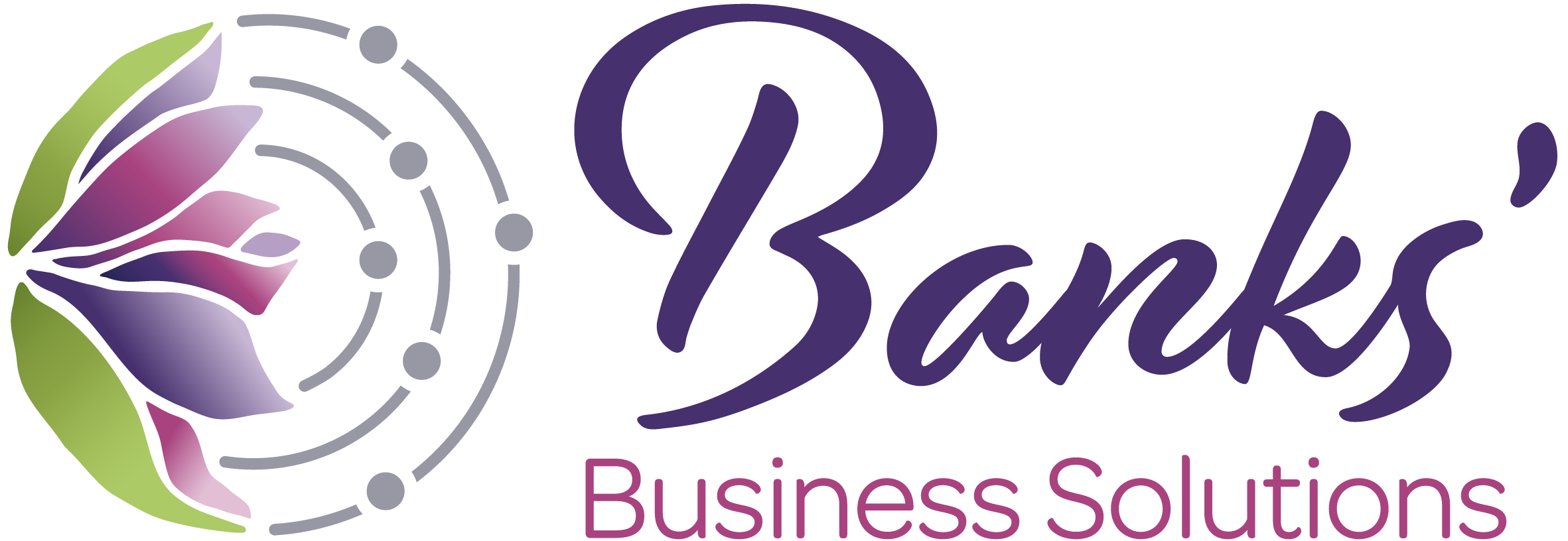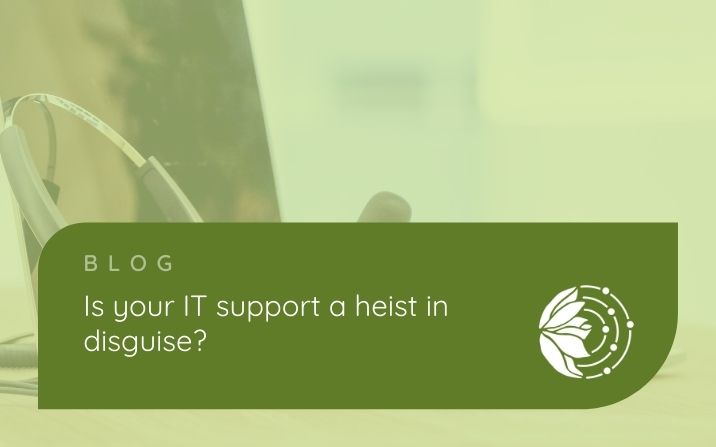Is Your IT Support a Heist in Disguise?
Okay, maybe “heist” is a bit dramatic but when it comes to IT support for your small or micro business, there are definitely some hidden dangers lurking. You might think you’re getting a great deal, only to find yourself trapped in a costly contract, facing unexpected fees, or worse, completely dependent on a provider who holds your precious data hostage.
That’s what can happen with some IT support providers. They might dazzle you with jargon, offer seemingly low prices, or promise the world but then you discover hidden costs, restrictive contracts, or a level of dependence that leaves you feeling trapped.
The Dependence Dilemma
Imagine building a website with a provider that uses a custom-built platform and offers limited access to the backend code. You might have a beautiful website but you’re essentially locked into their platform. If you want to make changes, add new features, or even switch providers, you’re at their mercy. They might charge exorbitant fees, make the process unnecessarily complex, or even refuse to release your website data.
The same thing can happen with your IT systems and tech when you become overly reliant on an IT support provider. They might use proprietary systems that only they understand, provide obscure documentation that’s impossible to decipher, or even restrict access to your own data, making it incredibly difficult to switch providers or manage your IT in-house.
This dependence can manifest in various ways. You might find yourself constantly needing to call the provider for even minor issues, unable to perform basic tasks or updates yourself. Or perhaps you discover that your data is stored in a format that’s incompatible with other systems, making it a logistical nightmare to migrate to a new provider.
This dependence can be particularly dangerous for small businesses that lack the resources or expertise to manage their IT independently. It can lead to escalating costs, poor service and a feeling of powerlessness. Imagine relying on a single supplier for all your business needs, if they raise their prices, change their policies, or simply decide to stop offering their services, you’re left in a precarious position.
That’s why it’s crucial to maintain control over your IT infrastructure and avoid becoming overly reliant on any single provider. It’s about ensuring you have access to your data, understanding how your systems work and having the ability to manage your technology effectively, whether you do it in-house or with the help of a trusted partner.
The “Costly Surprise”
This is a classic trick in the IT support world and one that can leave you feeling like you’ve been robbed in broad daylight. Some IT support providers might lure you in with low prices or attractive packages but then you discover a whole host of unexpected fees lurking in the fine print. Suddenly, you’re being charged extra for data storage, software updates, phone support, or even the privilege of speaking to a human being instead of a chatbot.
These hidden costs can quickly turn a “good deal” into a financial nightmare, especially for small businesses with tight budgets. You might find yourself facing unexpected bills that throw your financial planning into disarray, or you might be forced to cut corners elsewhere to accommodate these unforeseen expenses.
This lack of transparency can be incredibly frustrating and can damage your trust in the provider. It’s essential to be vigilant and ask detailed questions about all potential costs before signing any contracts. Don’t be afraid to scrutinise the fine print, clarify any ambiguous terms and get everything in writing. It’s like buying a used car – you wouldn’t just take the seller’s word for it; you’d want to get a thorough inspection and check the paperwork before making a purchase.
By being proactive and informed, you can avoid the “Costly Surprise” and ensure you’re getting a fair and transparent deal for your IT support. Remember, it’s not just about the initial price tag; it’s about the overall value and the peace of mind that comes with knowing you’re not being taken for a ride.
The Data Hostage Situation
Perhaps the most concerning scenario with IT support is the potential for your data to be held hostage. This can occur when a provider exerts excessive control over your data, making it difficult or even impossible for you to access or migrate your information should you decide to switch providers or manage your IT in-house.
Picture this: your business has grown and you’ve decided to switch to a new IT provider who offers more tailored services. However, when you request your data from your current provider, they make the process unnecessarily complex, charge exorbitant fees for data extraction, or even refuse to release your information altogether. This can leave you in a vulnerable position, unable to access critical business data, facing potential legal battles and feeling completely powerless.
The consequences of data hostage situations can be severe. You might experience significant downtime as you struggle to access your data, leading to lost productivity, missed deadlines and frustrated clients. You might also incur substantial costs to extract or convert your data, or even face legal expenses if you need to take legal action to regain access to your information.
This scenario highlights the importance of data ownership and control. When choosing an IT support provider, it’s crucial to clarify who owns your data, how you can access it and what the process is for migrating your information should you decide to switch providers. Don’t be afraid to ask detailed questions, scrutinise contracts and seek legal advice if necessary. Your data is the lifeblood of your business and protecting it should be a top priority.
How to Avoid the IT Heist
So, how do you protect yourself from these potential pitfalls? Here are a few tips:
Do your research: Don’t just jump at the first offer you see. Research different providers, read reviews and compare prices and services.
Ask questions: Don’t be afraid to ask detailed questions about contracts, fees, data ownership and access.
Get everything in writing: Make sure all agreements and terms are clearly documented.
Maintain access to your data: Ensure you have full access and control over your data, regardless of the provider.
Consider open-source solutions: Open-source software and systems can reduce dependence on specific providers.
Build some in-house IT skills: Even basic IT knowledge can empower you to manage some aspects of your technology and reduce reliance on external providers.
By being informed and proactive, you can avoid the “IT heist” and ensure your technology remains a valuable asset for your business, not a source of stress and expense.

